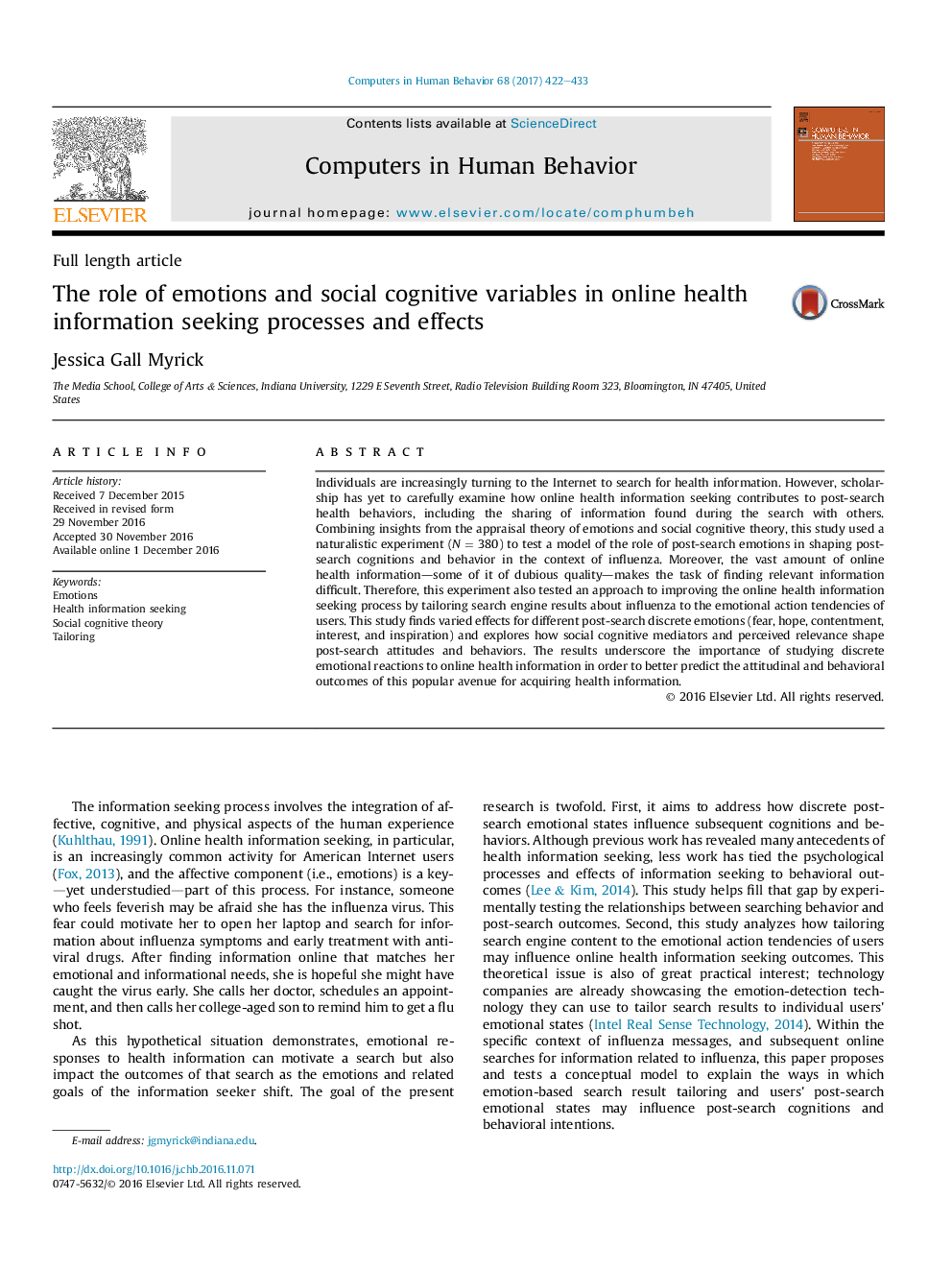| Article ID | Journal | Published Year | Pages | File Type |
|---|---|---|---|---|
| 4937699 | Computers in Human Behavior | 2017 | 12 Pages |
Abstract
Individuals are increasingly turning to the Internet to search for health information. However, scholarship has yet to carefully examine how online health information seeking contributes to post-search health behaviors, including the sharing of information found during the search with others. Combining insights from the appraisal theory of emotions and social cognitive theory, this study used a naturalistic experiment (NÂ =Â 380) to test a model of the role of post-search emotions in shaping post-search cognitions and behavior in the context of influenza. Moreover, the vast amount of online health information-some of it of dubious quality-makes the task of finding relevant information difficult. Therefore, this experiment also tested an approach to improving the online health information seeking process by tailoring search engine results about influenza to the emotional action tendencies of users. This study finds varied effects for different post-search discrete emotions (fear, hope, contentment, interest, and inspiration) and explores how social cognitive mediators and perceived relevance shape post-search attitudes and behaviors. The results underscore the importance of studying discrete emotional reactions to online health information in order to better predict the attitudinal and behavioral outcomes of this popular avenue for acquiring health information.
Related Topics
Physical Sciences and Engineering
Computer Science
Computer Science Applications
Authors
Jessica Gall Myrick,
